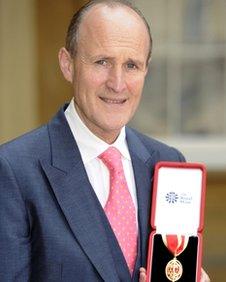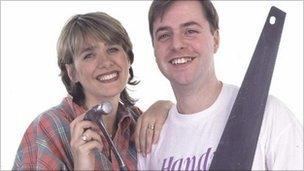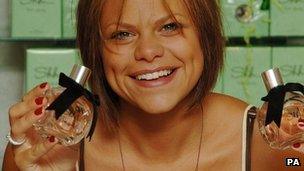Profile: Peter Bazalgette
- Published

Bazalgette was knighted by The Princess Royal at Buckingham Pace in May
Sir Peter Bazalgette, the man who brought Big Brother to Channel 4, has been named the new chairman of the Arts Council.
Credited with helping to invent reality TV, he was knighted for services to broadcasting in 2012's New Year Honours list.
Now his job will be to head up the patron of 690 arts bodies across England, at a time when it is suffering from large spending cuts.
The 58-year old, who is one of the most influential figures in British television, says his big achievement is "making facts as entertaining as possible".
Alongside Big Brother he is responsible for creating formats such as Ready Steady Cook, Changing Rooms and Ground Force, which have gone on to become international hits.
He studied at private school Dulwich College, in south-east London, before going on to Cambridge where he was president of the Cambridge Union Society.
He has said he had no alternative but to follow a career in the media after graduating with "a very poor law degree".
After joining a BBC News trainee scheme, he became a researcher on Esther Rantzen's That's Life before becoming a features reporter for the corporation.
He helped to create BBC Two show Food and Drink, which was launched in 1982.
His production company Bazal - later sold to Dutch producer Endemol - was founded in 1987 and produced a number of British TV hits that were franchised to other countries.
But it is not just television where Bazalgette has proved a high profile player, he became favourite for the Arts Council post thanks to his involvement with a range of arts bodies.
He is a Non-Executive director of the Department of Culture, Media and Sport and joined the English National Opera eight years ago, where he revamped the website before becoming chairman this year.

Carol Smillie hosted hit makeover show Changing Rooms
He is also president of the Royal Television Society, a Bafta fellow and served as deputy chairman of the National Film and Television School, where he raised £8m for new buildings.
Bazalgette also sits on the advisory board of recent venture The Space, an experimental digital arts service backed by the Arts Council and the BBC. It streams, hosts and commissions a range of new productions alongside archived works, in a bid to make the arts more accessible.
Of all the TV shows he has worked on, it is Changing Rooms he calls his "favourite programme of all of them". It gave designers such as Laurence Llewelyn-Bowen a modest budget to redecorate houses with the help of "handy" Andy Kane.
"It was revolutionary in its content and form, and became a hit in the US where it's still on," he has said.
"It was only on here for six years but was getting 12 million viewers in its peak - extraordinary."
Other hits include garden makeover show Ground Force, which teamed Alan Titchmarsh, Charlie Dimmock and Tommy Walsh together. Ready Steady Cook saw chefs, including Ainsley Harriott and Anthony Worral Thompson, get to grips with bags of ingredients presented by audience members.
He has said that he is proud of "inventing TV formats that have become hits abroad - from Quebec to Helsinki, from Sydney to Rome, with the pleasure of being ripped off many times in between".
However, it is Big Brother that he is most famous for. After becoming creative director of Endemol in 1998, he brought the show to the UK from the Netherlands two years later.

Jade Goody became Big Brother's most famous ex-contestant
The first series, which featured treacherous "nasty" Nick Bateman, dominated headlines in tabloids and broadsheets alike, and the show went on to make the likes of the late Jade Goody into household names.
The show was not without its controversies, most notably a racism row involving Goody and Bollywood star Shilpa Shetty on the Celebrity version.
While his successes have consistently put him among the British media's most powerful players, he has also been charged with changing the face of British television for the worse.
The Daily Mail's theatre critic Quentin Letts wrote an impassioned article, external, championing exactly why Bazalgette should not be given the Arts Council job.
He wrote: "Bazalgette, whose recent knighthood showed how tatty that honour has become, is both a low-grade opportunist and a multi-millionaire schmoozer."
Letts also branded him a "dumb-downer" and claimed Big Brother "revelled in the worst humanity could produce".
The Guardian has accused him of contributing to TV schedules which resemble "a televisual tranquiliser, administered from the top table of British society, down to the TV diners at the bottom".
But Bazalgette has previously said he would "want to be remembered for four or five shows that pushed the story forward and were reasonably original in terms of how we make TV shows".